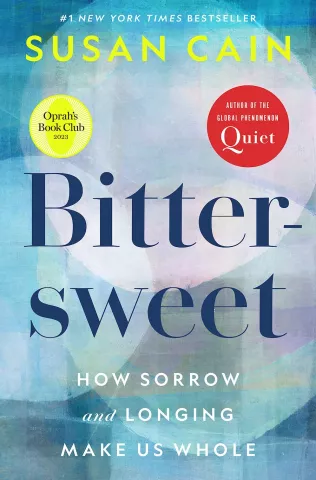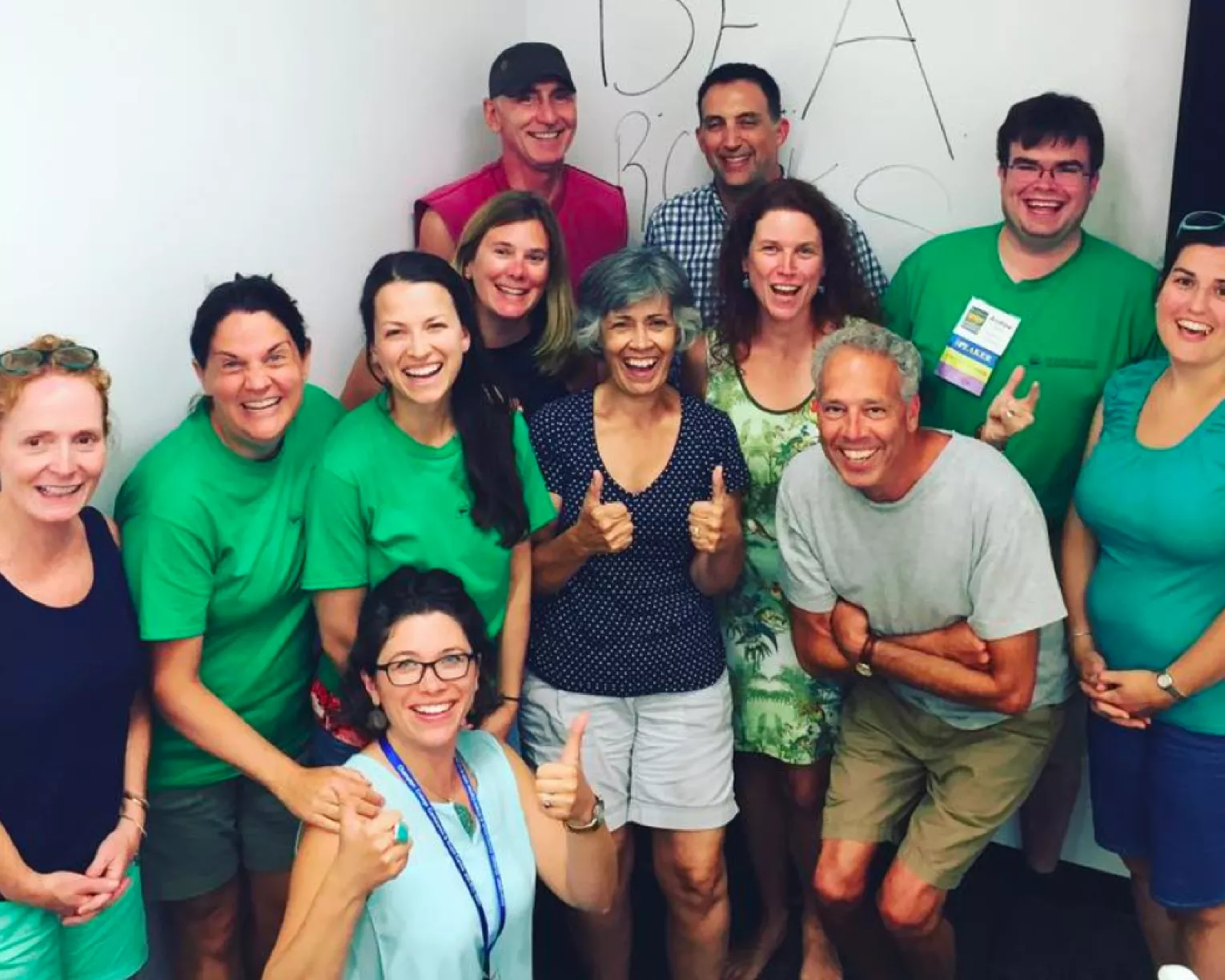
The final days of the school year can be bittersweet as you say goodbye to students, take down bulletin boards, pack up, and reflect on another year gone by. As you celebrate the victories, it’s hard not to think about what could have been different, to wish that things weren’t so hard for educators and students.
But in her new book Bittersweet, New York Times bestselling author of Quiet: The Power of Introverts in a World That Can’t Stop Talking, Susan Cain says it’s actually good to think about the tough times, even embrace them, because the good and the bad are all part of our shared existence.
“Teachers are struggling, our whole nation is struggling to get along,” Cain says. “We’re in a time of great discord, but one of the greatest bridges we have is acknowledging we all have anxiety, sorrow, and joy.”
Opening up to these feelings will allow you to share with your colleagues and students in deeper, more meaningful ways, which will build resilience for the next time things get difficult.
Cain shared with NEA Today her advice on how to manage these contradictory emotions.
Cope Through Connections
We all have sorrow, and teachers absorb the pain and trauma of their students while coping with their own personal struggles. But when we accept that instead of pushing it away, it can be the source of our greatest sense of union with each other.
We live in a world that is made up of both amazing joys and intense sorrows and all that’s in between.
None of it is permanent, and remembering that we will not be here forever, to tune into that reality, is to live a life of deeper connection and transcendence.
It’s OK Not to Smile All the Time

Our culture says “always smile” and “look on the bright side,” which gives us a lopsided view of life and prevents us from living as fully as we could.
You’ve been there, in that moment when you decide to open up to a colleague. You suddenly realize you are close enough to do that, and this act brings you even closer. If we can do that as a culture, with our personal and collective pain, it could bring opposing groups together.
Life’s Road is Both Smooth and Jarringly Rough
Teachers and others who work in the service of others have bittersweet moments embedded into their day-to-day, and it may feel like the bitter overpowers the sweet many times. But leaning into that pain and accepting it brings strength and resilience.
We tend to feel that when things are going well, we’re on the main road, but when anything is off-kilter, in big and small ways, we see that as a detour off the main road, and that something’s gone horribly wrong. But it’s all the main road, the smooth and the bumpy. Life is this mix, and it always has been.
Normalizing the experience—knowing it’s ok to feel bad and to struggle with pain—can change the way we deal with it. It doesn’t make our problems go away, but we’ll spend less energy shaking our fists and saying why is this happening to me.
SEL Applies to Us, Too
A former teacher I interviewed for Bittersweet talked about a little boy who lost his mother and felt very alone with his grief. The student thought there was something wrong or weird about him, because he was the only one who had experienced this. He didn’t know how to talk about it or deal with those feelings.
The teacher created a sharing circle. She asked the students who liked the color red to step forward into the circle. Then she asked anyone who liked to jump to enter the circle. Next she asked anyone who felt sad to step in, and then invited into the circle anyone who had lost someone they loved. She stepped in, and the boy did, too.
That allowed the boy and the other children to name what was happening and see they weren’t alone. Teachers need to do those exercises among colleagues, too.
Turn Toward Each Other
In times of great struggle, when forces seem to be against you—which can feels like a perpetual state for American educators—try to find strength in each other.
Open up to the reality of your struggle and others will open up to you. It’s the ultimate way of connecting.
Secondary trauma, the feeling of trauma educators experience when learning about the traumas so many of their students live with, is happening to teachers everywhere. It’s a shared experience and it doesn’t have to be carried alone.
Name it. Legitimize it. We don’t feel entitled to feel the things we feel, but we are entitled to it.
Accept Pain, Then Express It
The next step is finding a way to transform the feelings by expressing them with writing, talking, or some kind of creative expression.
We have two choices: Denying our pain, which ends with taking it out on ourselves or others; or accepting our pain and attempting to transform it into something else.
My friend Susan David, an awardwinning Harvard Medical School psychologist, lost her father when she was 14. Cheerful by nature, she also felt that cultural messages she was receiving was to act is if everything was fine.
She went back to school and acted like everything was normal. She ended up with bulimia, Cain says, “because the pain has to go somewhere.”
One day Susan’s teacher handed out blank notebooks. She looked into Susan’s eyes as asked the class to write down exactly what they were feeling—to write their truth.
Susan said it was the only time someone had told her to record what she was really feeling and that whatever those feelings were, that they were valid.
She said writing her painful feelings down and sharing them with her teacher set her free, of the bulimia and of the grief. The magic is in the acknowledgment of pain and the creation of a space to share it.

Your Community is Waiting
What are you waiting for?
No other professional organization does more for Vermont educators. With your support, we can protect our profession today, and for the next generation of educators.
